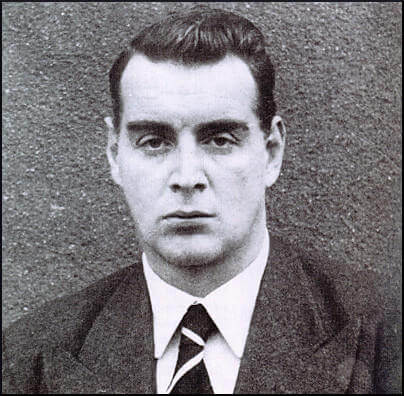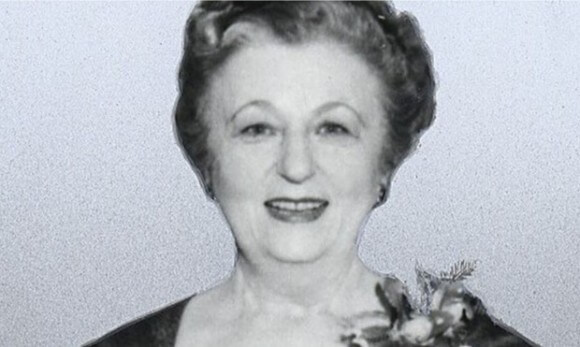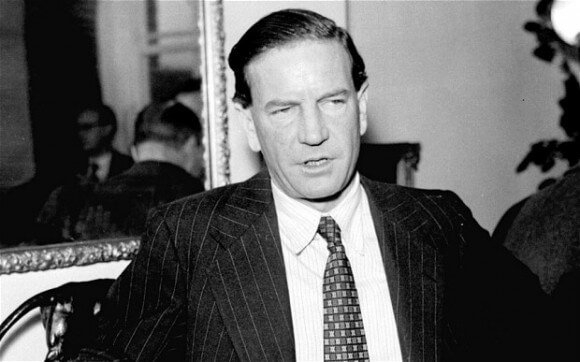Here’s a great story about the cultural/political influence of Zionists in the west, showing that Zionism and anti-Zionism are ancient ideological rivals, pitted historically like Communists and anti-Communists.
You all know the name Kim Philby. He was the “third man” in the legendary Soviet spying ring inside England’s intelligence service that was discovered in the 50s and 60s. Philby met Guy Burgess and Donald Maclean when they were all young Communists at Cambridge University, but Philby was able to maintain his cover longer than the other two. He was the last of the group to flee, in 1962, to Moscow, the city where all three men died.

A recent book on the case explains that Philby was done in in the end by… his criticism of Israel as a journalist, which angered an English supporter of Israel who informed authorities that he was a spy. So Philby is in a tradition of writers hurt by taking on Zionism. And, surprise, American reviews of the book by leading writers leave out the Zionist angle entirely.
Pat, a regular reader, lately picked up a copy of that book, Among Friends: Kim Philby and the Great Betrayal, by Ben Macintyre, and he relates the story.
Philby (1912-1988), Burgess (1911-1963), and Maclean (1913-1983) were all from the best English background, had high-status government jobs, and were secretly Communists. Pat writes:

In the spring of 1951, Philby is 39 and working for MI6 in Washington, DC, when he learns that the Americans have discovered that Maclean, 38, who also works for the British intelligence, is a Soviet spy. Philby alerts Burgess.
Philby only wanted Maclean to flee. But Burgess joined Maclean in flight to Russia. This cast a huge shadow on Philby because Burgess and he were tight; Burgess stayed with Philby in his DC house for months while Burgess was stationed in DC. Maclean was Philby’s friend from college, but they were not that close later.
Philby resigned from MI6 during July of 1951. He was interrogated many times but was able to defend himself with his wit and his Eton and Cambridge connections.
He was given severance pay worth today’s $34k and he went to work as a journalist.
Philby was not named publicly as the “Third man” until October of 1955, when the story came out in the United States. This was world-wide headlines, but the story was not aired in England because of libel laws. Philby gave a presser at that time and denied all allegations once again and the matter was settled.
Philby went to Beirut for the “Observer” and Economist” during August of 1956.
Now here comes the Zionist angle. It seems that back in 1935 Kim Philby had tried to recruit a leftwing heiress who had been born in Russia: Flora Solomon (1895-1984).

Here is an excerpt of Macintyre’s A Spy Among Friends, Chapter 17, pages 244 and 245:
Flora Solomon had lived a life that stretched rather bizarrely, from the Russian Revolution to the British high street: after an early affair with a Bolshevik revolutionary and marriage to a British soldier, she had been widowed young, raised her son Peter alone (who in 1961 founded Amnesty International), and then created the welfare department at Marks & Spencer. A pillar of Anglo-Jewish society, she continued to hold regular salons in her Mayfair home, just as she had in the 1930’s. Solomon remained Russian in accent, British in manner, and a committed Zionist in her politics. “Russian soul, Jewish heart, British passport” was how she described herself. By 1962 her main passion in life was the State of Israel, which she supported in word, deed, and funds at every opportunity. It was Flora Solomon’s commitment to Israel that brought Kim Philby back into her life. Every week she read the “Observer”, paying particular attention to coverage of the Middle East, and found herself becoming increasingly irritated by Philby’s articles. “To anyone with eyes to see they were permeated with anti-Israel bias. They accepted the Soviet view of Middle East politics,” she wrote. In the simplistic divisions imposed by the cold war, while Israel was supported by Washington, Moscow curried favor among the Arab states, and in Solomon’s subjective opinion Philby was churning out Soviet propaganda designed to weaken her beloved Israel. (This was not exactly true: Philby was instinctively pro-Arab, but he was far to canny to reveal any overt pro-Soviet bias in his journalism.) During the 1950’s, she had assumed the accusations against Philby were merely McCarthyite smears. Now she was not so sure. She remembered his remarks about “the cause” back in 1935 and the rather clumsy attempt to recruit her. “The thought occurred to me that Philby had, after all, remained a communist, notwithstanding his clearance by MI5 of possible complicity in the Burgess-Maclean scandal.”
In August 1962 Flora Solomon visited Israel, as she had done many times before, to attend a conference at the Chaim Weitzmann Institute, the science research center in Rehovot founded by Israel’s first president and endowed by Baron Sieff, the chairman of Marks & Spencer. At a party in Weitzmann home she encountered Victor, Lord Rothschild, another patron of the institute. A distinguished scientist himself, Rothschild had headed MI5’s sabotoge and explosives section during the war and won the George Medal for “dangerous work in hazardous circumstances.” A regular at the Harris soirees and a Cambridge contemporary of Burgess and Blunt, Rothschild himself would later be accused, quite unfairly, of being a Soviet spy himself.. In fact, although a left-winger in his youth, like Flora Solomon he had no truck with communism and retained close links with MI5. Rothschild and Solomon had known each other since the 1930’s, and their conversation naturally drifted to their mutual acquaintance Kim Philby.
“How is it the “Observer” uses a man like Kim? Don’t they know he is a communist? observed Solomon.
Rothschild was startled by the certainty in her voice. Solomon went on to describe how, back in 1935, Philby had told her with pride that he was doing a “very dangerous job for peace” and attempted to enlist her as a Soviet spy. Rothschild was now listening intently. He had followed the Philby case closely and knew that despite an array of circumstantial evidence against a man who had once been his friend, no one had come forward to link Philby directly with Soviet intelligence. He began to quiz her about Philby and the wartime circle of friends they had shared. She replied that she always suspected Tommy Harris might be a Soviet spy, based on an “intuitive feeling that Harris was more than just a friend” to Kim Philby.
Flora Solomon later maintained that her motives in exposing Philby were strictly political: he was writing anti-Israel articles and she wanted him sacked from the “Observer”. But her reasons were also personal …
It seems that Solomon detested Philby’s treatment of his second wife Aileen, who was a friend of Solomon’s. Mcintyre:
“You must do something,” Solomon told Rothschild in her imperious way. “I will think about it,” he told her.
Victor Rothschild was a veteran string puller. He did more than think. On his return to London, he repeated the conversation to MI5, sparking jubilation among the small group of officers still determined to bring Philby to justice. Here at last was a “major breakthrough”. With difficulty, Flora Solomon was persuaded to come to an interview with MI5 officers in Rothschild’s flat, which was bugged for the occasion. There she repeated her account of the conversation with Philby from three decades earlier. The investigators found her “a strange, rather untrustworthy woman” and suspected she had been more deeply implicated in left-wing radicalism than she was admitting. The interview was recorded by MI5 investigator Peter Wright. Writing many years later in his explosive book “Spycatcher”, Wright wondered if she and Philby had been lovers and whether her belated revelation was motivated by spite: “She clearly had a grudge against him.”
Flora Solomon was getting cold feet, alarmed is she testified against Philby she might invite the attentions of a KGB assassination squad. “I will never give public evidence,” she told MI5.
There was finally a witness in Solomon. A new investigation was started, and Philby confessed in Beirut to his friend and fellow MI6 man Nick Elliot. The interrogation went on in Beirut for a few days and Philby was allowed to go back to his house to sleep every night.
Philby fled to Russia January, 1963. Many believe that the Brits preferred Philby in Moscow than a long public trial in London. The escape was pretty easy.
And here’s the bottom line: Flora Solomon may well have known about the Philby suspicions in 1951, and certainly could have gone to the authorities after Philby’s public outing in October 1955. She didn’t. No, Kim Philby’s last straw was criticizing Israel.
Macintyre has written that Flora Solomon is a hero to him. As she changed British history.
I mentioned the American reviews that have nothing to say about the Zionism.
Walter Isaacson’s review of Macintyre in the New York Times is all about the tribal loyalties of the inbred social class, on the fraying fringe of Britain’s aristocracy, whose members held, Macintyre writes, “a shared set of assumptions about the world and their privileged place in it.” Here’s how Isaacson describes Philby’s discovery:
Philby’s mooring began to slip after his father’s death and, inevitably, his past caught up with him again. By 1962, enough evidence had accumulated that even Elliott became convinced his friend was a mole. He insisted that he be the one allowed to confront Philby and try to extract a confession. “Inside he was crushed,” Macintyre writes. “He wanted to look Philby in the eye one last time. He wanted to understand.”
Macintyre’s book climaxes with a psychological duel over tea, cloaked by a veneer of gentility, which led to some subsequent meetings and a partial confession from Philby. But instead of arranging an arrest or abduction or assassination, Elliott told his erstwhile friend that he was going to Africa for a few days before the process of interrogation resumed. On his own in Beirut, Philby immediately contacted his Russian handlers, who whisked him on a freighter to Moscow, where he lived the rest of his life in exile.
He moved to Beirut to work as a correspondent for the Observer and The Economist, only to have M.I.5 launch a second investigation, in the early nineteen-sixties. Before it could be completed, Philby slipped away. In January of 1963, a car with diplomatic plates picked him up from a bar in downtown Beirut and took him to a Soviet freighter bound for Odessa.



The greatest ideological opposition of our times? C’mon, man. Are you really that obsessed with Israel? It’s one country. There are 193 on the Earth. Zionism is the ideology of 1. It is not that important an ideology unless you believe in the Protocols of the Elders of Zion.
Thanks Phil, that is truly a revelation. I suspect it will insert a number of missing pieces into the puzzle. Wright’s book raised more questions than it answered but few, if any considered the Zionist angle which may be the clue to the roles of many of the actors in that drama. Back then it was a bi-polar World (us and the Reds) – no-one understood Zionism as an ideology with its’ own infrastructure of covert operatives and ulterior motives.
Anyone sufficiently intrigued by this story as to follow through should also look to the parts the following cast of characters played:
Anthony Blunt
Peter Wright
Moura Budberg
James Jesus Angleton
Nobody influential cares, although it impacted many lives in its day; so, here’s something funny for you, the Hagee folks sent their bible to the Knesset & the latter wiped their asses with it: http://falastinews.com/2015/05/23/israeli-mp-publicly-tears-christian-new-testament-to-pieces/
The anti-fascist alliances of the 1930s created many strange bedfellows, I think.
One of McIntyre’s previous books was “Operation Mincemeat” which I read a few years ago. It was about the famous intelligence operation told in the story “The Man Who Never Was.” The man who ran that operation was Ewen Montagu, who was Jewish. His brother was Ivor Montagu, a passionate Communist. Ivor spied for Russia for years and even though British intelligence knew it they never prosecuted him. If I recall correctly the reason was that it was better to have him watched to see whom he dealt with. Also they also were thinking of his more famous brother, who was considered a hero.